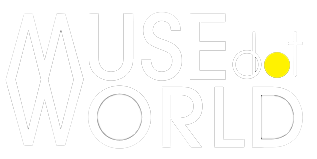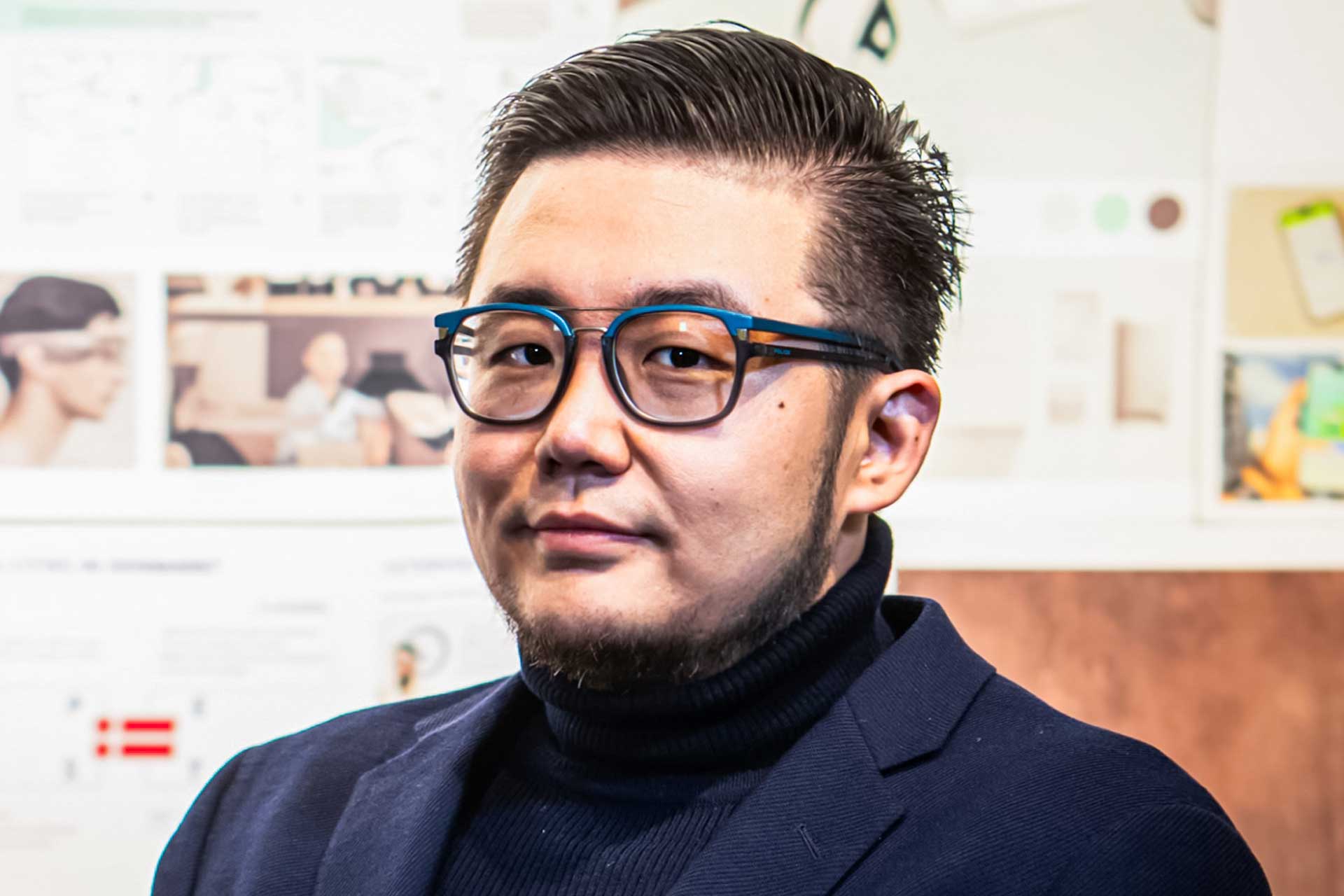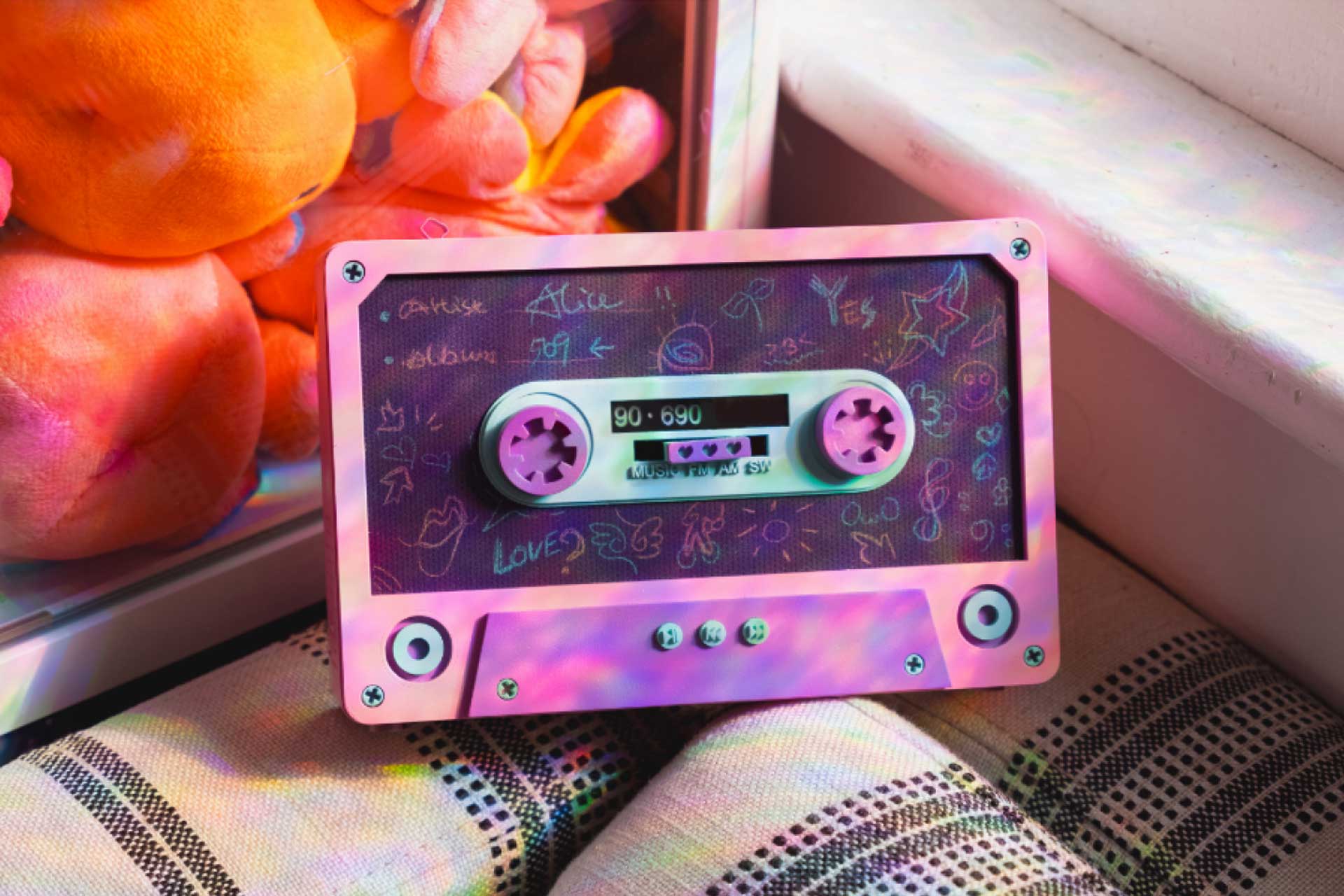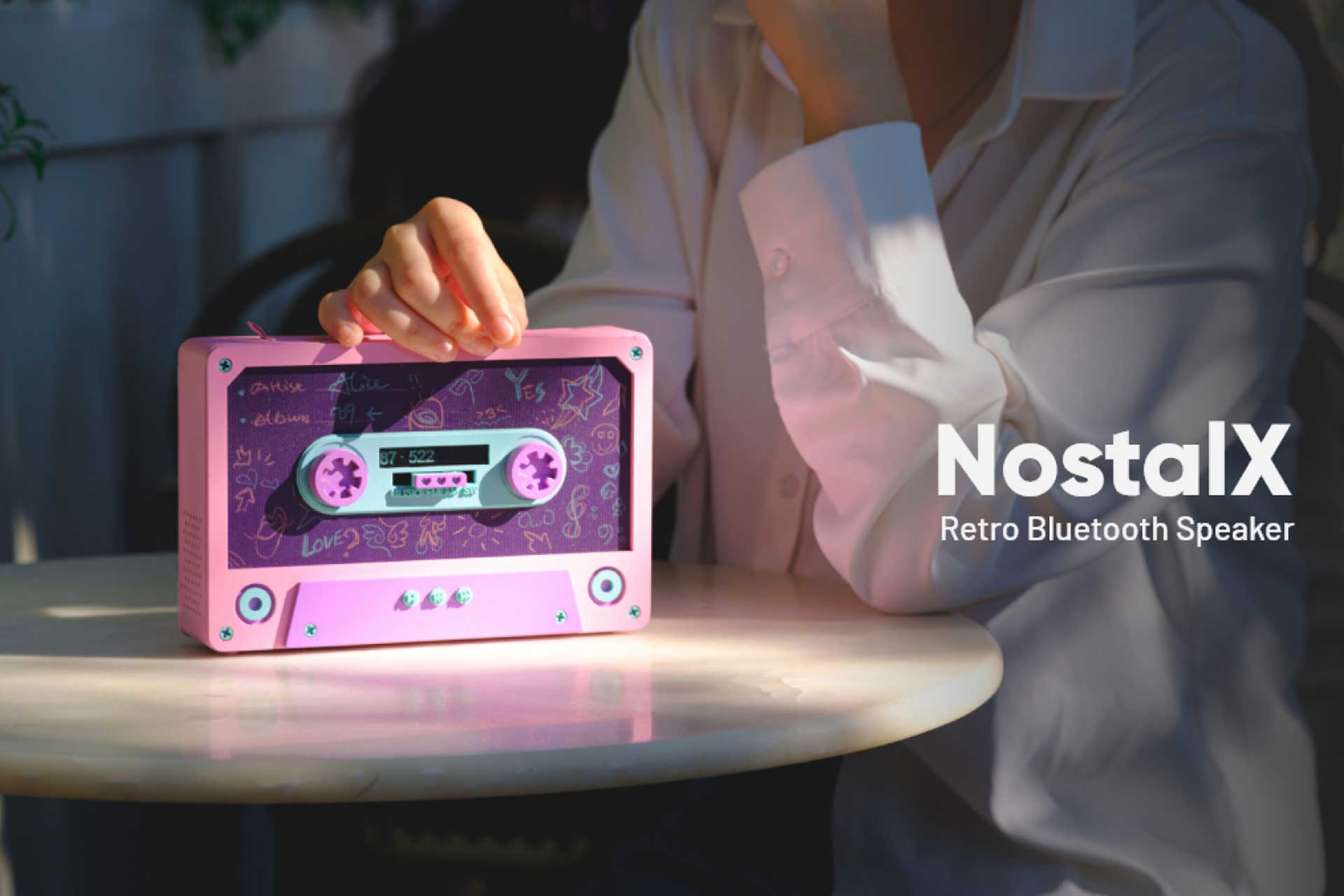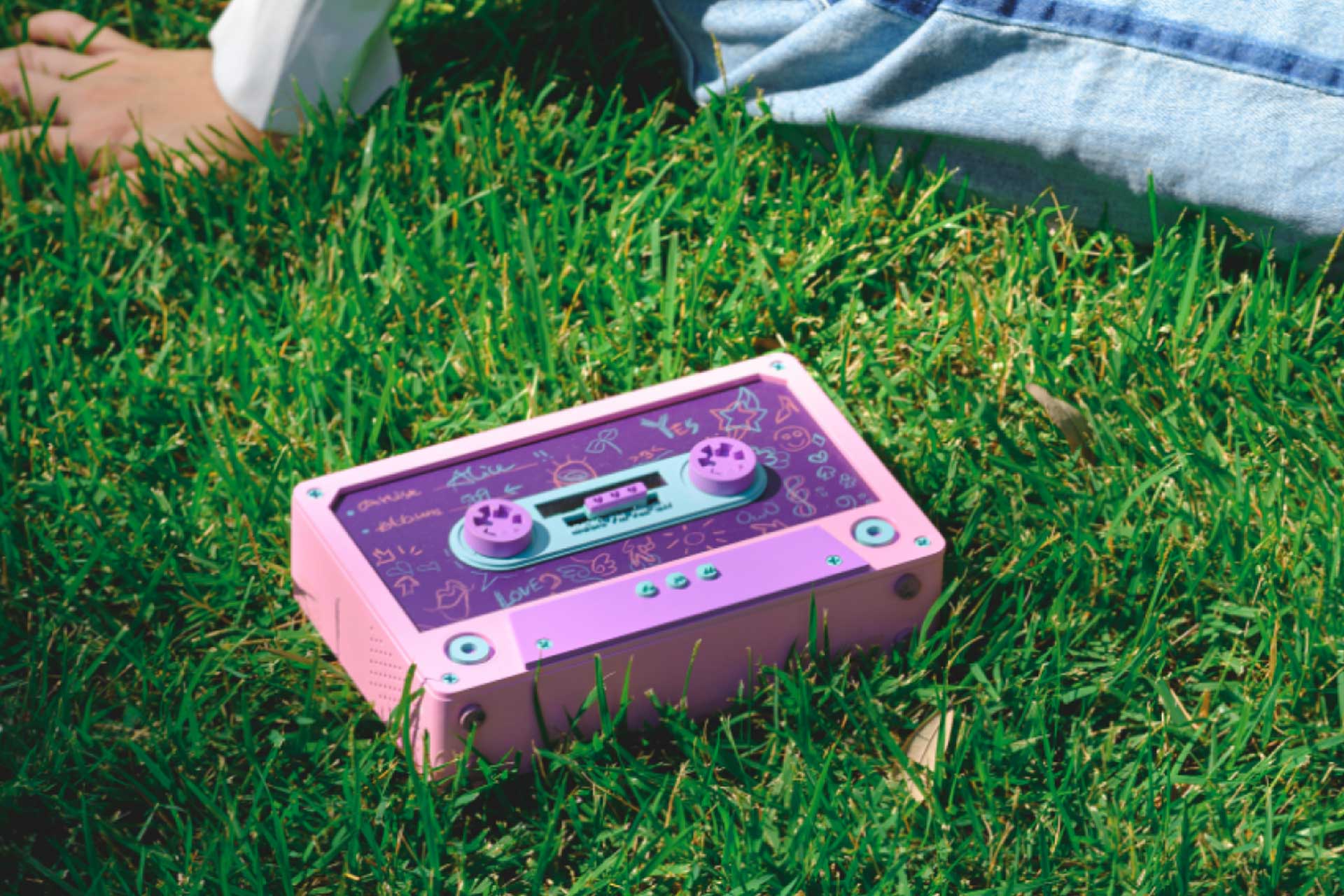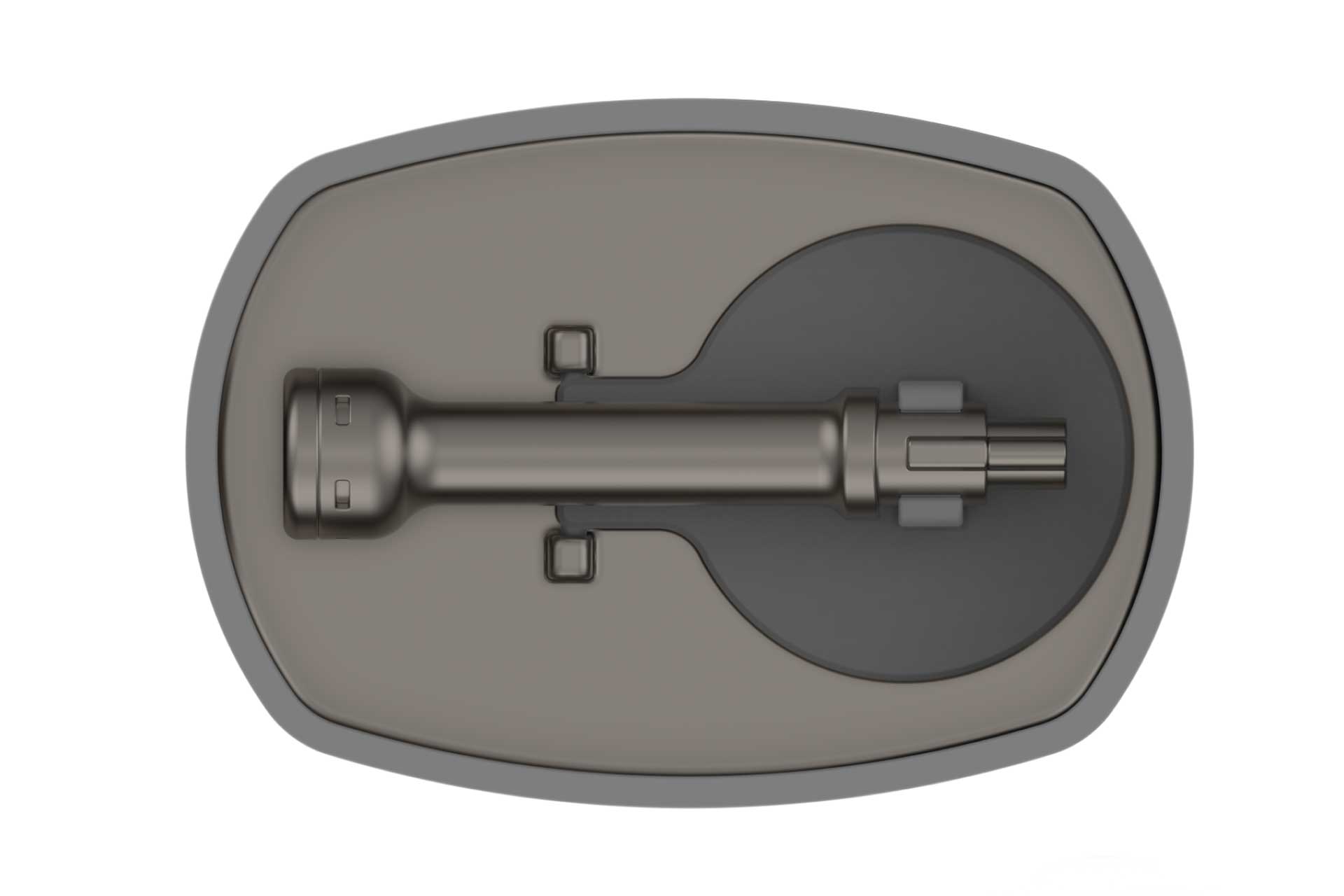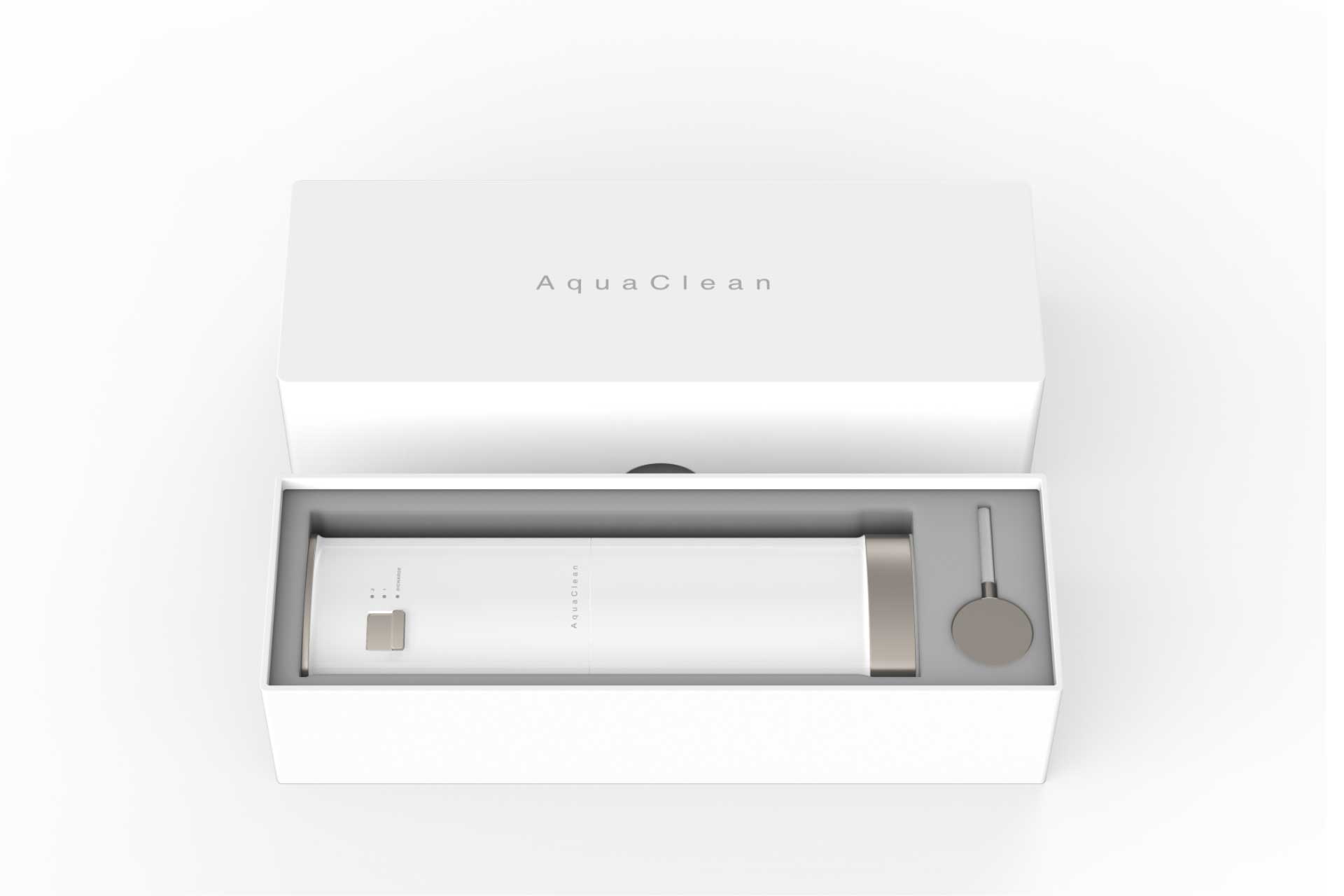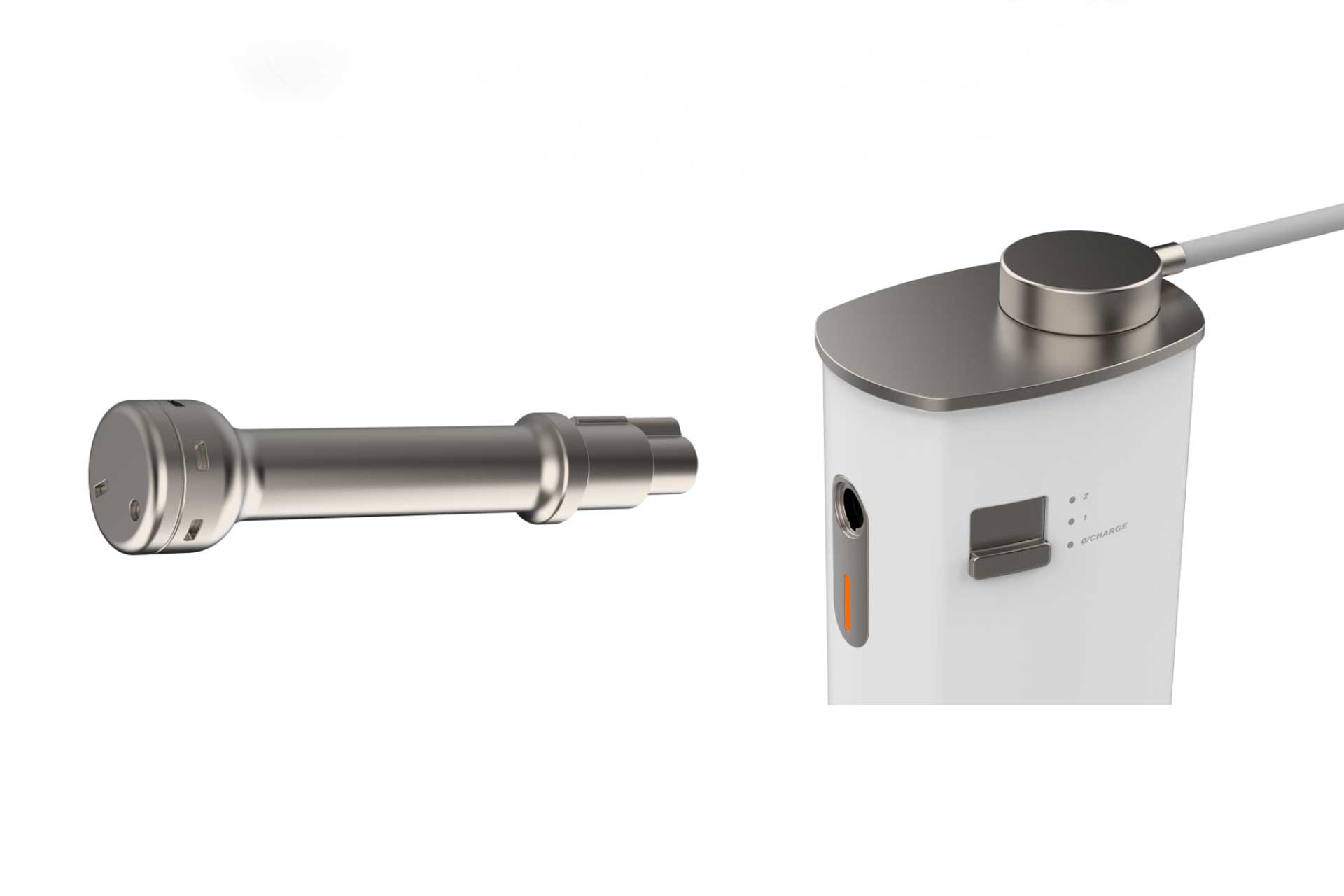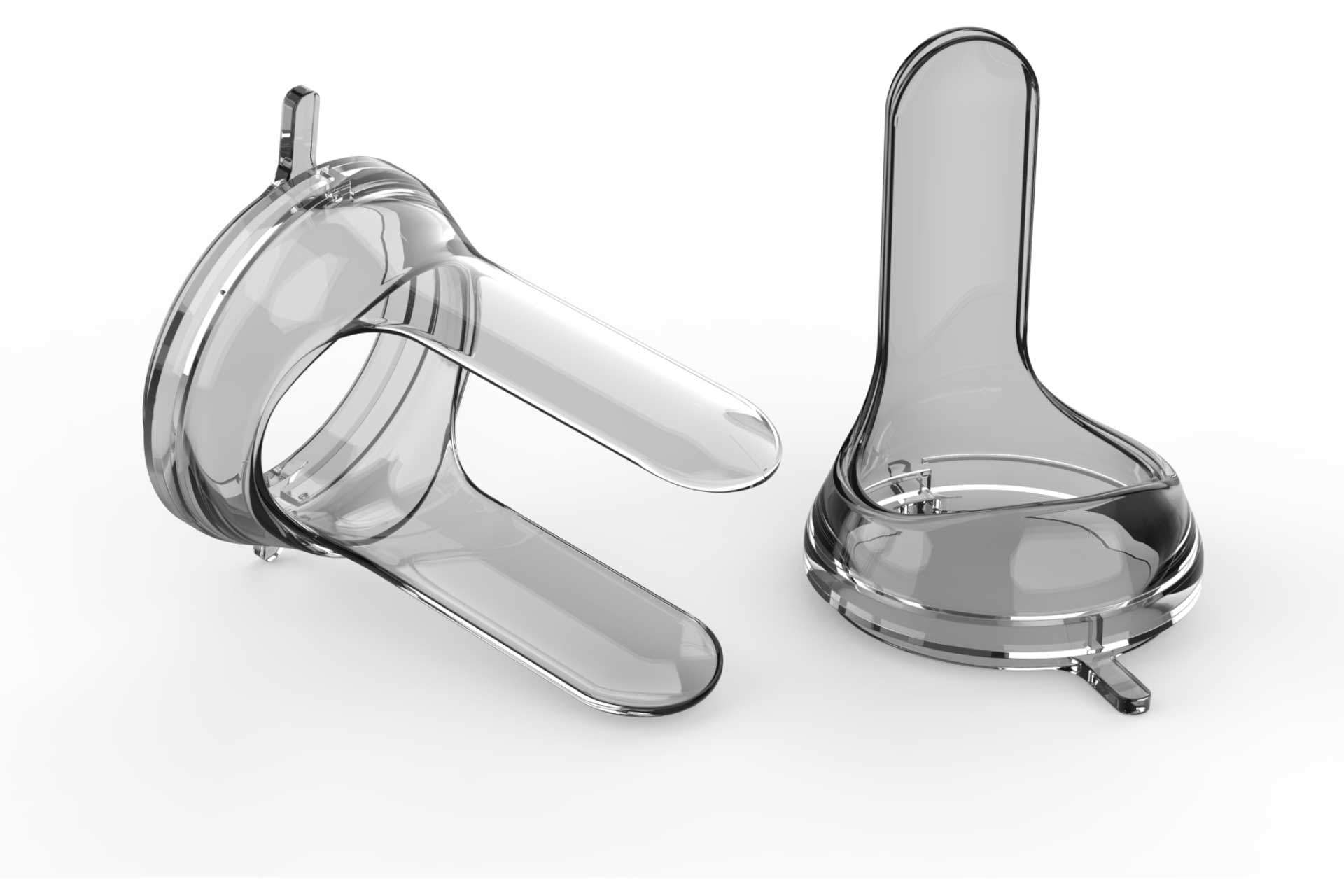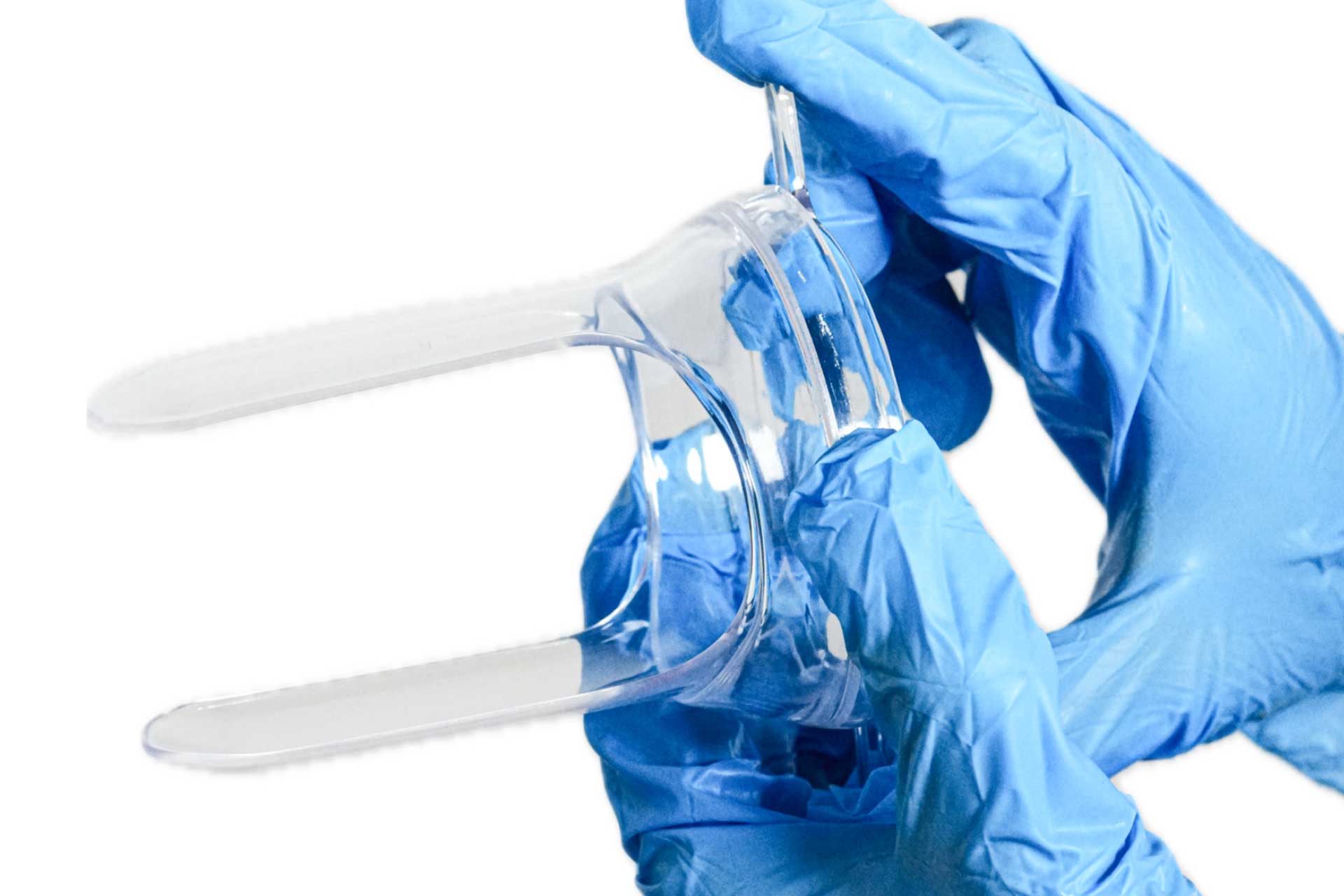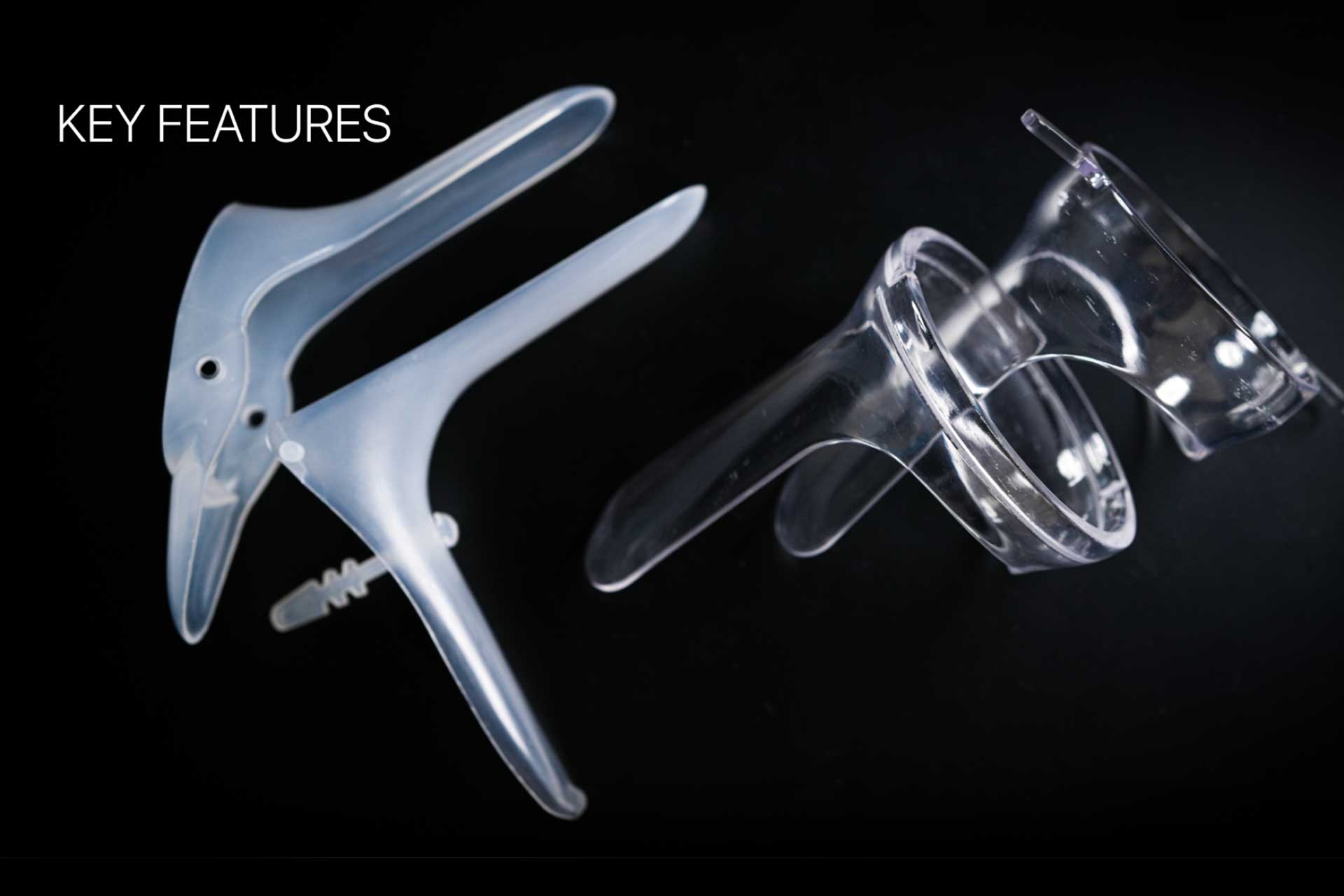Menghai Xia Leads FFBA in Creating Designs that Connect and Empower

Shelly McElroy on Building Dream Culture and Being Honored as Entrepreneur of the Year
March 31, 2025
From Blank Canvas to Impactful Experiences: A Sharing by Jiayu Hu
April 1, 2025Menghai Xia
Menghai Xia (Luke) is the founder and lead designer of Functional Form Block Allies (FFBA), a design consultancy known for its innovative product solutions. Co-founded with Qijun Nie (Quentin), FFBA specializes in industrial, interactive, and service design, with a focus on fashion accessories.
I am Menghai Xia (Luke), the founder and lead designer of Functional Form Block Allies (FFBA), a design consultancy firm offering a wide range of product design solutions. I co-founded FFBA with Qijun Nie (Quentin), an exceptional designer and FFBA’s lead design partner.
Our firm specializes in industrial design, interactive design, service design, and even extends its expertise to fashion design, focusing primarily on accessories. FFBA serves as a comprehensive solution provider across diverse industries, including medical devices, consumer products, and business solutions. My work reflects a user-centered philosophy, blending functionality with form to address real-world needs.
As a former professor in industrial design, I bring a unique perspective to my practice, balancing academic rigor with professional expertise. This year, FFBA earned multiple prestigious design awards, further validating our commitment to meaningful, innovative design.
I am the founder and lead designer of Functional Form Block Allies (FFBA), a design consultancy firm co-founded with my amazing design partner, Mr. Qijun Nie, also known as Quentin. FFBA provides a wide range of design solutions, including industrial design, interactive design, service design, and fashion design, with a focus on accessories. Our expertise spans industries such as medical devices, consumer products, and business solutions, allowing us to address diverse client needs.
At FFBA, my role involves leading projects, ensuring that our designs align with our core philosophy of blending functionality with form to create thoughtful and impactful solutions. As a team, we aim to produce designs that respect and enhance human experiences, staying true to our user-centered and systematic approach.
Our work has been recognized globally, and this year we were honored with multiple prestigious design awards, reflecting the value and innovation we bring to the industry.
Beyond delivering design solutions, FFBA also strives to nurture the next generation of designers. Through educational initiatives, we connect students and young professionals with real-world industry insights, helping them understand processes and challenges while encouraging fresh perspectives that can inspire new ways of thinking.
This dual focus on professional work and education makes FFBA not just a design consultancy but also a collaborative platform for creativity, innovation, and growth.
Design, to me, is as essential as breathing—only it’s like trying to breathe in a new way each time. It’s become a daily routine that shapes my thoughts and approach to life. I once heard that designers and chefs are quite similar: both work with rules, ingredients, and endless possibilities.
Chefs combine and reinvent ingredients into new recipes, and design is much the same, only we work beyond food. Design is about combining elements in fresh, impactful ways, crafting experiences and solutions that others can follow, adapt, and be inspired by. That continual exploration and reinvention—that’s what design means to me.
My favorite kind of design is one that I can physically interact with—something tangible that creates a memorable, human connection. While automation and intuitive design have their merits, I believe the best designs are about people and go beyond pure functionality or aesthetic appeal.
If I had to choose, my favorite designs are those that touch people deeply, evoking emotions and leaving lasting impressions. These designs not only fulfill a need but also connect people to the physical world and to each other, creating moments of joy, nostalgia, or meaning. It’s this emotional impact—designs that become anchor points in people’s memories—that I find truly inspiring.
To me, a “good” design goes beyond mere success or profitability. It’s about genuinely helping people and creating meaningful experiences. A good design should evoke positive emotions, adding a bit of brightness to the user’s day.
While it may inspire desire or appreciation, it does so in a way that enhances life, not just through consumerism but by making people feel uplifted, even if only for a moment. When a product or experience leaves users feeling like today might be a little better because of it, that’s when design truly succeeds.
My design style is grounded in a mindset of genuine respect for users, aiming to make a meaningful, positive difference in their lives. It’s not about creating something merely profitable or marketable, but about truly improving the user experience. When I design, I prioritize human respect and empathy, considering not only functionality but also privacy, rights, and dignity.
This approach shapes a design that is not just user-centered but humane-centered. I aim to create solutions that respect users as individuals, balancing innovation with integrity to deliver thoughtful, impactful designs.
My design process begins with viewing the user or client as more than just a consumer—they’re like a friend, someone I genuinely care about and want to support. I approach each project by deeply considering who these people are, what they love, and what resonates with them on an emotional level.
When I treat users and clients as real individuals with unique needs and desires, it shifts the focus from just creating a product to building something meaningful. This perspective allows me to design with empathy, aiming to craft solutions that genuinely enhance their lives. My process, in essence, is about designing with love for real people.
Yes, I believe my cultural heritage has a strong influence on my design approach. Coming from China, a culture deeply rooted in family values, integrity, and hard work, I carry these principles into my work. Family and integrity-driven values push me to create designs that are honest, thoughtful, and meaningful.
However, cultural heritage can have both positive and challenging aspects; one challenge I see is the tendency to overlook individuality in favor of the collective. Recognizing this, I strive to balance these influences, aiming to respect each person as an individual within the broader context. This blend of cultural values shapes a balanced, thoughtful approach to my design process.
Winning the 2024 MUSE Design Awards is a profound honor for both me and Functional Form Block Allies (FFBA). It’s a testament to the dedication and creativity of our team, whose work spans industries such as medical devices, consumer products, and fashion accessories. For us, this recognition is not just a celebration of success but a validation of our core mission: to create designs that blend functionality and form while truly improving people’s lives.
This year, some of our award-winning projects were presented under their project team names instead of FFBA. This was a deliberate decision to highlight the contributions of our younger designers and allow them to shine individually. At FFBA, we strongly believe in nurturing new talent and giving them the platform to grow and be recognized. By doing so, we aim to create a collaborative environment that empowers the next generation of designers while showcasing the breadth of our work.
This award inspires us to keep innovating, refining our processes, and pushing the boundaries of design. It also reinforces our confidence when presenting to clients, showing that our values and designs resonate globally. Ultimately, this achievement motivates us to continue contributing to the industry, not only by delivering impactful designs but also by fostering talent and ensuring that design remains a force for positive change.
We’re honored to have several projects recognized in the 2024 MUSE Design Awards. Each of these designs was entered because we believe they strongly reflect our commitment to creating more humane, thoughtful, and convenient products.
These projects aim to bridge connections between people in ways that may not have been possible before, balancing the needs of service providers and receivers. While our winning works span different categories, they all share a core mission: to create designs that genuinely care about and enhance people’s lives, embodying the values that drive us at Functional Form Block Allies.
Winning a MUSE Design Award has been incredibly validating for our practice. It’s given us broader recognition and strengthened our confidence when presenting to clients, showing that our ideas and values resonate on a global scale.
This achievement demonstrates that design success goes beyond profitability—it’s about making a positive impact on people’s lives. We’re grateful for this recognition and inspired to continue creating meaningful, people-centered designs.
China’s design industry is uniquely diverse, driven by a blend of regional cultures, mindsets, and vast market needs. It’s not a single, unified perspective but a dynamic mix of traditions and modern influences, offering endless research and design opportunities.
The country’s unparalleled manufacturing capacity makes it possible to turn almost any design concept into reality, enabling rapid prototyping and production at scale. Additionally, with such a large population, there’s a wealth of open-minded individuals ready to share insights and collaborate.
While China’s complex environment brings unique challenges, it also fosters innovation, pushing designers to rethink and refine their approach continually. This complexity, combined with manufacturing power and cultural richness, makes China a truly exciting place to work in design.
In the next 5 to 10 years, I see the design industry embracing more automation and AI-driven tools, streamlining the process and making final refinements easier and faster. As our tools continue to evolve, designers will spend less time on labor-intensive production and more time connecting with real people to understand their needs deeply.
This shift will allow designers to focus on creating more humane, thoughtful designs that resonate on a personal level. By freeing up time for genuine human interaction, the industry will have a chance to move in a direction where design isn’t just about efficiency but about creating meaningful connections and solutions that truly enhance people’s lives.
The MUSE Design Awards website itself is an excellent resource, offering a vast database of inspiring work. For developing specific skills, online platforms can teach you everything from drawing to software to understanding manufacturing processes. However, as I often tell my students, the best resources are all around you in real life.
Engage with people, observe, and learn from real interactions. Understanding human needs and experiences firsthand is invaluable, as design ultimately serves people. So, immerse yourself in real life—it’s the richest resource a designer can have.
I’ve had many inspiring figures in my life, but if I had to choose one, it would be my mentor, Professor Owen Foster. Coming from a redneck background in Alabama, he rose to become a university professor, department chair, and a respected leader in design education.
His journey—marked by courage, warmth, and a deep commitment to engaging with real people—has been truly inspiring. Owen’s dedication as a designer, educator, and mentor has set a high standard and taught me the importance of integrity and empathy in my work. I’m deeply grateful to have learned from him.
Yes, I’d like to highlight the collaborative spirit of our organization, Functional Form Block Allies (FFBA). While we are a relatively new entity, our work as a team spans several years, built through professional practice and friendship. Alongside my co-founder and lead design partner, Mr. Qijun Nie, and our exceptional design partner and consultant, Mr. Weijing Zhao (Jony), we have had the privilege of mentoring and working with some incredible younger designers.
This time, I’d especially like to recognize Yuqing Xiao (Alice), who has been instrumental in our research and design processes. Despite her young age, Alice brings a fresh, vivid perspective that connects deeply with the next generation of consumers and markets. I’d also like to thank Siyu Zang, a designer and researcher currently pursuing her master's degree at the Royal College of Art in the UK. Siyu has made vital contributions to our research projects and medical product innovations, adding depth and insight to our work.
Looking ahead, we are excited to take our award-winning projects further, collaborating with clients and partners to bring these designs to life in global markets. We also remain dedicated to supporting and mentoring the next generation of designers, helping them shine on the world stage. For us, design is a vital behavior of innovation, and by working together with both experienced and emerging talents, we hope to make a positive impact and contribute to a better future.
Menghai Xia
Menghai Xia (Luke) is the founder and lead designer of Functional Form Block Allies (FFBA), a design consultancy known for its innovative product solutions. Co-founded with Qijun Nie (Quentin), FFBA specializes in industrial, interactive, and service design, with a focus on fashion accessories.
Explore the journey of Qijun Nie, the Gold and Silver Winner of the 2024 MUSE Design Awards. His expertise spans industrial, interactive, and service design, and even includes fashion accessories. As the founder and lead designer of Functional Form Block Allies (FFBA), which he co-founded with Mr. Menghai Xia, he drives the consultancy’s mission to create innovative and thoughtful product solutions.
